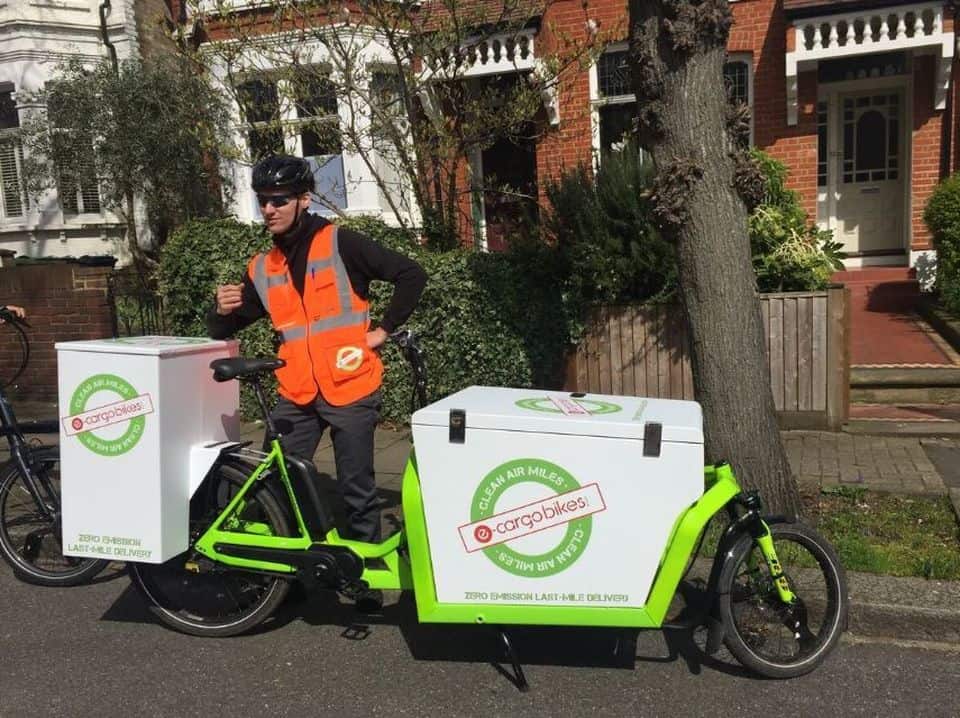The longlist for the 2019 Ashden Awards, announced today, highlights some the boldest thinking and biggest breakthroughs in sustainable energy. Our energy experts’ rigorous research during the longlisting process has brought key themes and trends to light.
The list shows how sustainable energy is changing the lives of people around the world, from commuters in Europe to the poorest farmers in rural Africa. Software innovation and smarter business models are playing a key role. Around the world, bicycles – both traditional and electric – are helping people avoid polluting car and van use. In the UK and abroad, innovators are grasping the potential for retrofitting to make existing buildings more energy efficient.
The Ashden Awards were established in 2001 and are globally recognised as a mark of excellence in the field of green energy. This year’s Awards Ceremony takes place in London on July 3, and will be a flagship event at the first London Climate Action Week.
Awards will be given in ten categories, with the following organisations making the longlist:
Powering business
Our experts found bold new business models are helping even the poorest people use electricity to boost their incomes. Micro-grid innovators are tackling major challenges to scale and viability, including how to sustainably grow the demand for power at a local level. Software innovation is making micro-grids more standardised, and a better investment option.
Agsol, Papua New Guinea/Indonesia/Vanuatu
Mlinda, India
Promethean Power, India
Resham Sutra, India
Sustainable energy and health
Reliable, affordable electricity can drive a healthcare revolution. One key insight from this year’s research was that organisations working in this area find keeping equipment like solar panels in good working order is a big challenge. Our research found organisations are tackling this through a range of models including well-designed partnerships and power-purchase agreements.
Karuna Trust, India
SunFarmer, Nepal
Sure Chill, Global
We Care Solar, Global
Clean cooking
Polluting cookstoves kill four million people a year around the globe, and this category drew applications from all over the world. A broad range of technologies, fuels and approaches are needed to tackle this issue – there is no one-size-fits-all solution. Technologies such as biogas, gasifier stoves, biomass pellets and liquified petroleum gas are all on the longlist – as well as a range of business and customer finance models.
African Clean Energy, Lesotho/Uganda/Cambodia
Envirofit, Global
Inyenyeri, Rwanda
KopaGas, Tanzania
Sistema.bio, Global
Financial or business model innovation
This is where we saw the most dynamic innovation, and the highest number of applicants. This is welcome news, as every year $1 billion in catalytic finance – grants, concessional finance and government support – is needed to unlock the $52 billion necessary to make electricity and clean cooking available to all.
We have uncovered a growing range of ‘ecosystem services’ including software, business support and financial tools. We are particularly keen to reward organisations helping bring energy to the most marginalised and isolated communities.
Baobab+, Madagascar, Mali, Senegal, Cote d’Ivoire
CIIE, India
HOMER Energy, Global
Odyssey Energy Solutions, Global
REEEP – Beyond the Grid Fund for Zambia
Solar Sister, Sub-Saharan Africa
TRINE, Global
UK clean air in towns and cities
This award is focused on sustainable transport and mobility, as most urban pollution is caused by fossil-fuelled road vehicles. We looked for innovation that offers alternatives to cars and encourages behaviour change in the use of transport – progress in these areas could lead to faster decarbonisation than developments in electric cars.
London Borough of Waltham Forest
International sustainable mobility
As in the UK clean air category, bicycles and e-bike innovation dominates this longlist. Potential winners include new and established enterprises, as well as a leading city authority.
Bikxi, Brazil
Bogota District Department of Mobility, Colombia
Safetipin, Global
SMV Green Solutions Pvt. Ltd, India
UK sustainable buildings
Upgrading the UK’s existing buildings is the most effective way of quickly decarbonising our built environment, so this year’s longlist focuses on retrofitting. Applications show retrofitting is becoming more widespread across the UK – despite a lack of government policy to encourage it.
National Energy Foundation & Energiesprong UK
International sustainable cities and buildings
This longlist features projects that either reduce CO2 emissions or avoid emissions from new buildings, have clear social benefits and show the potential to create large-scale change.
Ecoblock International, Mexico
eQuota Energy, China
Habitat for Humanity, Armenia
Morphogenesis, India
UK energy innovation
The longlist for this UK award reflects our focus on energy storage and decarbonising the heat supply, major challenges facing the country. Data collection and analysis is becoming more widespread, in homes, businesses and elsewhere.
Cooling for People
The longlist below represents a range of innovative and ambitious approaches in urban greenery that are keeping cities cool and liveable.
Alcaldía de Medellin – Green Corridors Initiative
Addis Ababa – City River Basins and Green Areas Development
Singapore Urban Redevelopment Authority – Landscaping for Urban Spaces and High-Rises (LUSH) policy
Singapore Housing and Development Board – Punggol Waterways
For more information on our Cooling for People award, see here.
The 2020 Ashden Awards
Are you part of a scheme – or know of one – that’s breaking new ground in renewable energy generation, reducing energy demand, increasing access to energy, or encouraging more sustainable forms of transport? If so, you can register your interest for the 2020 Ashden Awards here.

